Why is it SO HARD to find fragrance-free soap for my baby?
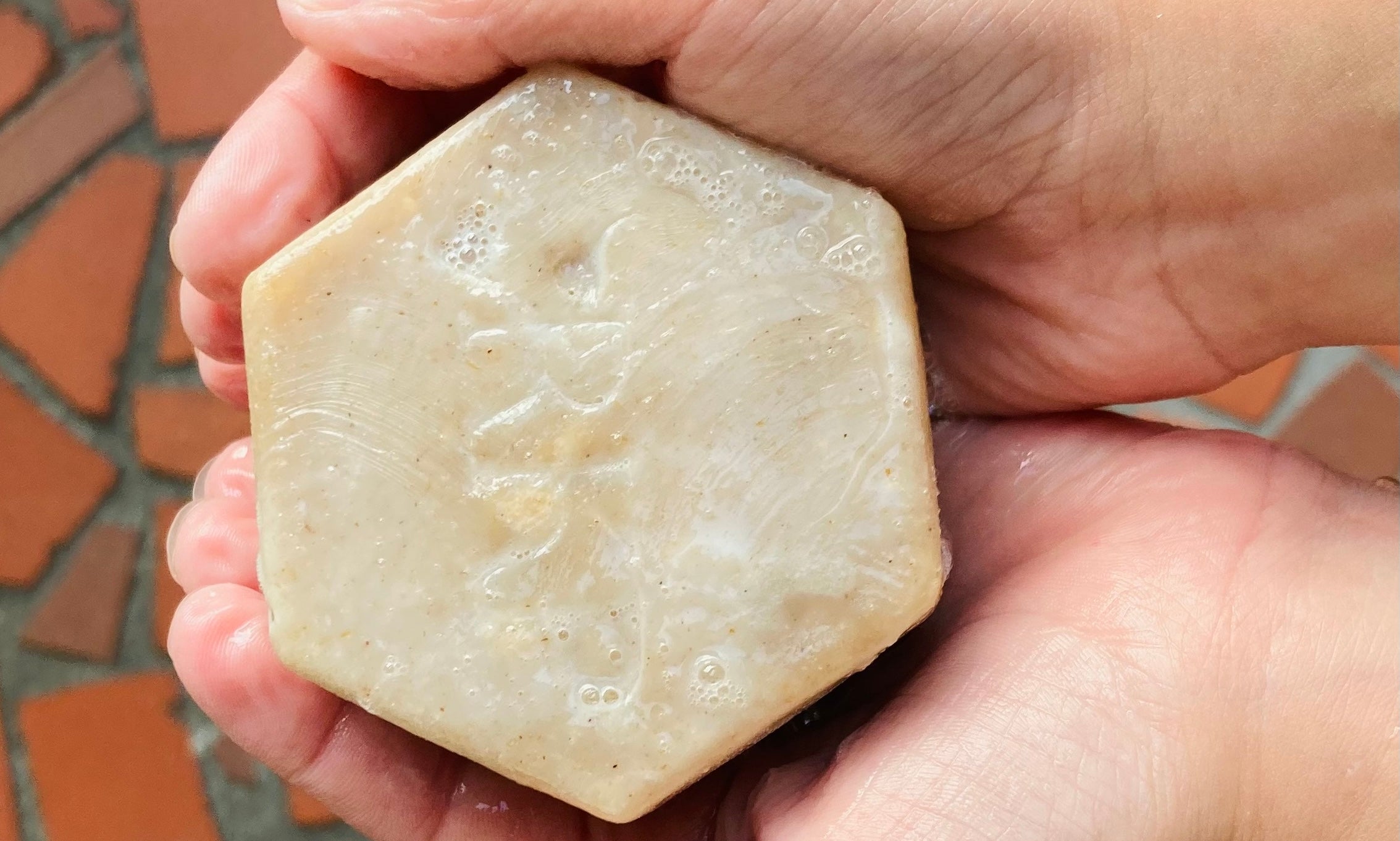
I have sensitive skin. I always have! If I don’t use sensitive, fragrance-free products my skin feels itchy. I’ve even broken out in hives from certain products. Even worse, my eyes will get itchy and watery when I’m exposed to a strong fragrance.
This is true of “natural” fragrances like essential oils, too—they bother me almost more than the fake smells. Everything in our house, from the shampoo/conditioner, to the soap, to the cleaning products is fragrance-free.

You can imagine my surprise when I started shopping for my first baby back in 2015 and discovered that almost every baby product was full of fragrances. Baby oil, soap, lotion, diaper cream, even disposable diapers and wipes were all scented.
This shocked me. Considering how delicate a baby’s skin is, why is “scented” the default? And why did all these products for babies have a mile-long list of other questionable ingredients?
I knew my son would likely have sensitive skin like me, so I worked on a strategy to keep his skin as clear as possible. The following are some tips and tricks that have worked for us over the years.
Use products with minimal ingredients.

If your child has a reaction to an ingredient, you’ll have an easier time singling out the culprit if you start with as few ingredients as possible. When I first went shopping for baby soap, I tried Aveeno, Burt’s Bees, and BabyGanics brands because they all carried a fragrance-free option.
Burt’s Bees seemed to dissolve too quickly to do much cleaning. Aveeno was way too thick and viscous and was difficult to squeeze out of the bottle. BabyGanics foamed up nicely and was my favorite of the three, but it was hard to find in stock. And all three brands had too many ingredients to untangle, ran out too quickly, and came in a wasteful plastic bottle.

I was thrilled when I discovered a local shop that sold baby soap bars with only three ingredients! By RKP handmade Everyday Baby Soap Bar is gentle, fragrance-free, vegan, and sustainably packaged (they ship throughout the USA!). This is by far the gentlest, best cleanser I’ve found so far for my kids. And the best part is that if you leave it to dry out between uses, it will last for weeks, making it the cheapest option in the long run.
As soon as I tried the baby soap, I also switched my own soap over to by RKP’s Everyday Soap Bar for grownups. They are also working on hand-crafted baby oils and other fragrance-free, gentle products to keep in stock. Be sure to follow them to keep up with product launches and new releases.

Switch to Cloth Diapers
Here is a partial list of the kind of ingredients you’ll find in disposable diapers:
- Super absorbent polymer
- Chlorine bleach
- Dioxins
- Synthetic fragrances
- Artificial dyes
- Phthalates
- Volatile organic compounds
- Petroleum-based polypropylene
- Surfactants
- Wood fluff pulp
- Thermoplastic polymer
- Petrolatum lotions
- Persistent organic pollutants
- And a bunch of other undisclosed ingredients.
If your baby has a reaction to any one of those ingredients, good luck finding out which one is the culprit. You’ll have a hard time finding a disposable diaper brand that doesn’t use the ingredients on this list, either.
On the other hand, you can buy cloth diapers that are made of purely natural ingredients like 100% cotton and wool. Even the synthetic cloth diapers are less likely to cause a reaction on your baby’s skin than disposables.

byRKP soap shown here with Flappy-Nappies® brand cloth diapers.
Make sure you wash your cloth diapers with enough detergent.
The good news is that cloth diaper care is simpler than ever—many types are so easy to use that the only difference between them and a disposable diaper is that you put the cloth diaper into the hamper instead of the trash. Laundry is easy, too—shake out any solid poop into the toilet (or use flushable liners), dump the diapers in the washing machine with detergent, add an extra rinse, and chuck into the dryer. DONE!
However, there is some bad advice floating around that you need to use minimal detergent on cloth diapers or the detergent will “build up” on the diapers and make them repel moisture. Unfortunately, skimping on detergent will cause something else to build up—ammonia. And a buildup of ammonia can cause a bright red diaper rash.

I found this out when my oldest was using cloth diapers. As soon as I stripped the diapers and started using plenty of detergent (I started adding borax as well to make sure they were extra clean), the rash cleared up. And I never had an issue with a “buildup” of detergent.
Consider trying Elimination Communication
All three of my kids had very little diaper rash once I figured out how much detergent to use on our cloth diapers. But, if they pooped in their diapers, they’d develop an instant rash from contact with the poop.
I say “if” they pooped their diapers, because they mostly pooped in the toilet from the time they were newborns. We did Elimination Communication (EC) with them, which is the process of learning and responding to their need to pee and poop and offering the toilet instead of a diaper. Basically, I learned to anticipate when they needed to poop (watch for a poop face!), which typically happened after naps or car rides, and held them in a squat over the toilet.

Using this laid-back method, we were catching 90% of their poops and a few pees a day in the toilet by the time they were 2-3 months old. In fact, poopy diapers became so few and far between that we almost didn’t know what to do when one ended up in the diaper!
This saved our babies a lot of pain and irritation from poop-induced diaper rash. If your baby tends to rash up instantly from a poop, seriously consider giving EC a try. Poops are so easy to anticipate (you probably already have an idea of when they happen!). You’ll also find that the overall time your kid uses diapers is way less than average—most EC babies are diaper-free by about 18 months old.

See a doctor for persistent problems.
To this day, my oldest son still suffers from multiple dermatological issues. We see a dermatologist regularly, who has helped immensely with his eczema and other skin problems. Natural, at-home remedies are our first line of defense—until a problem persists or worsens. Then we turn to the experts to help our kids find relief!
Did your babies have sensitive skin?
What products or tips can you recommend? Ket us know in the comments!
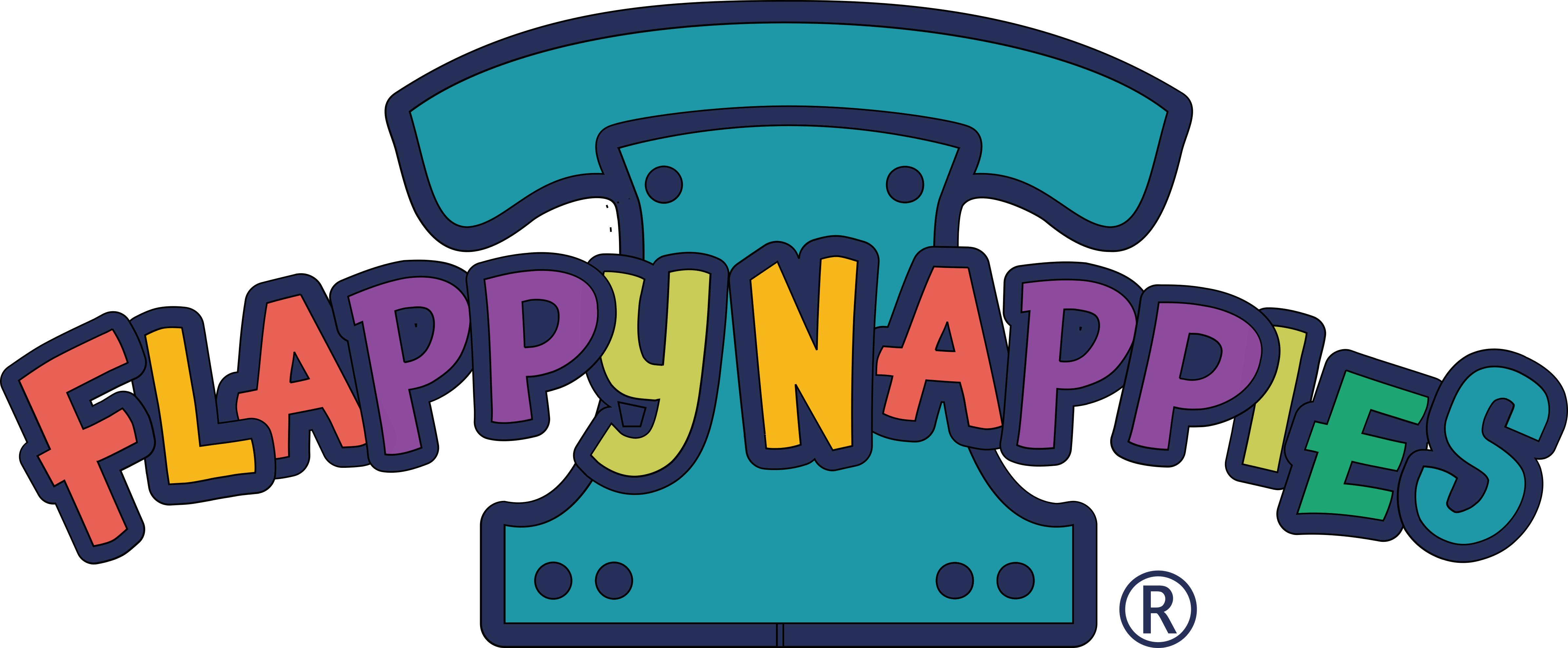
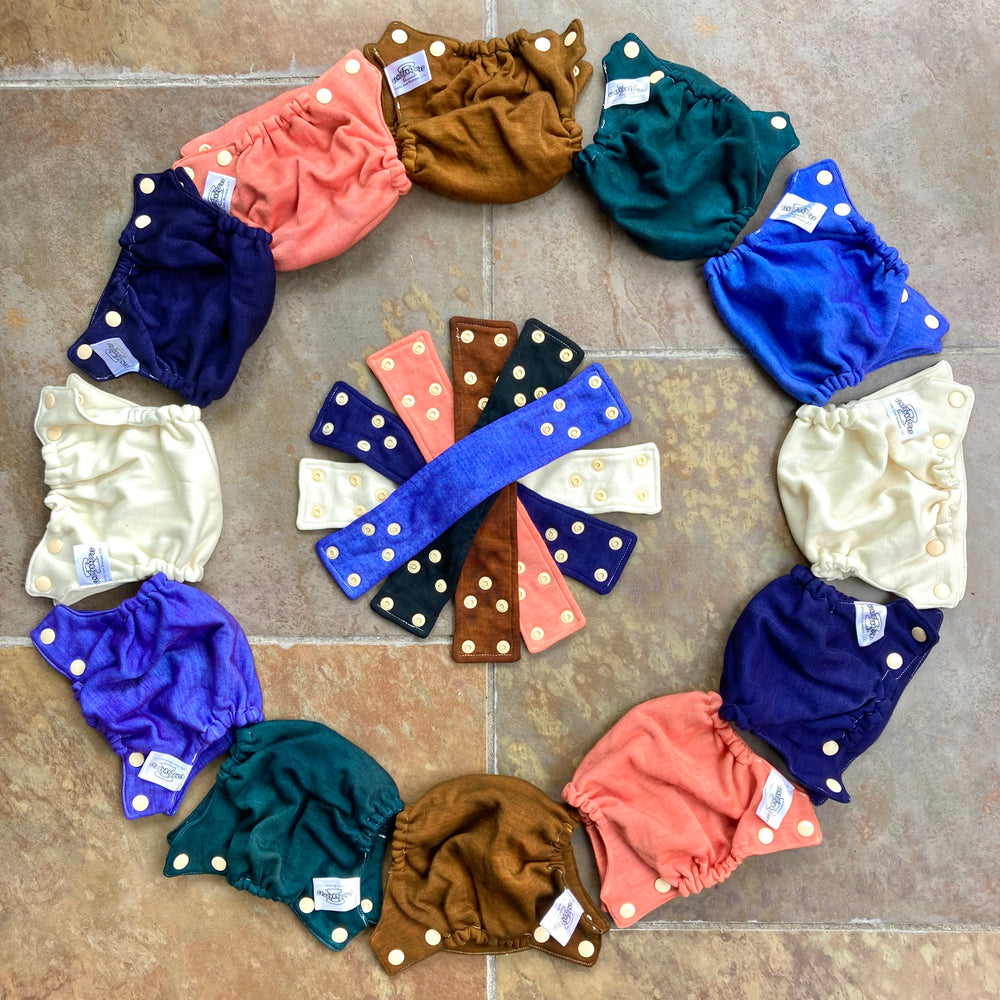


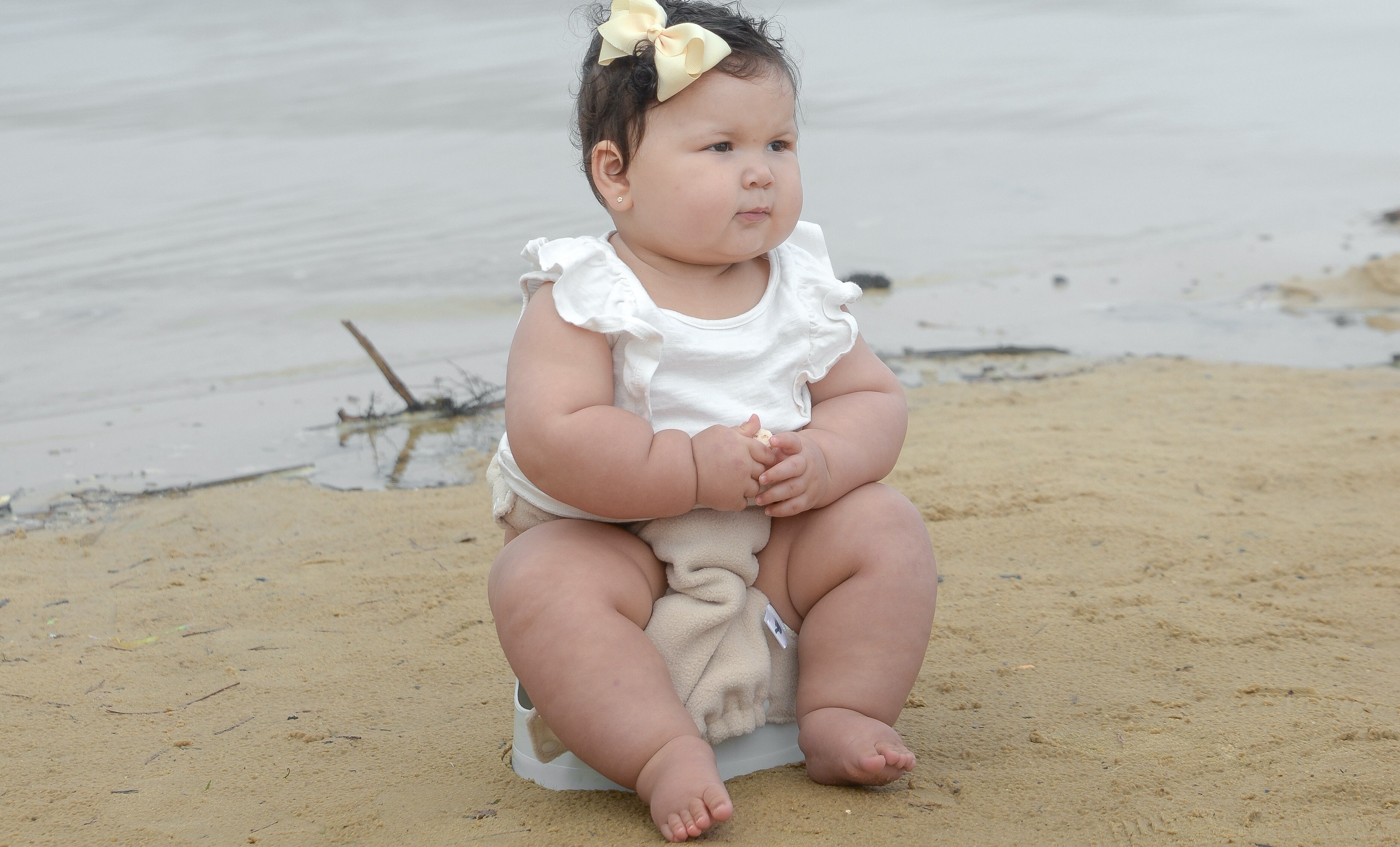
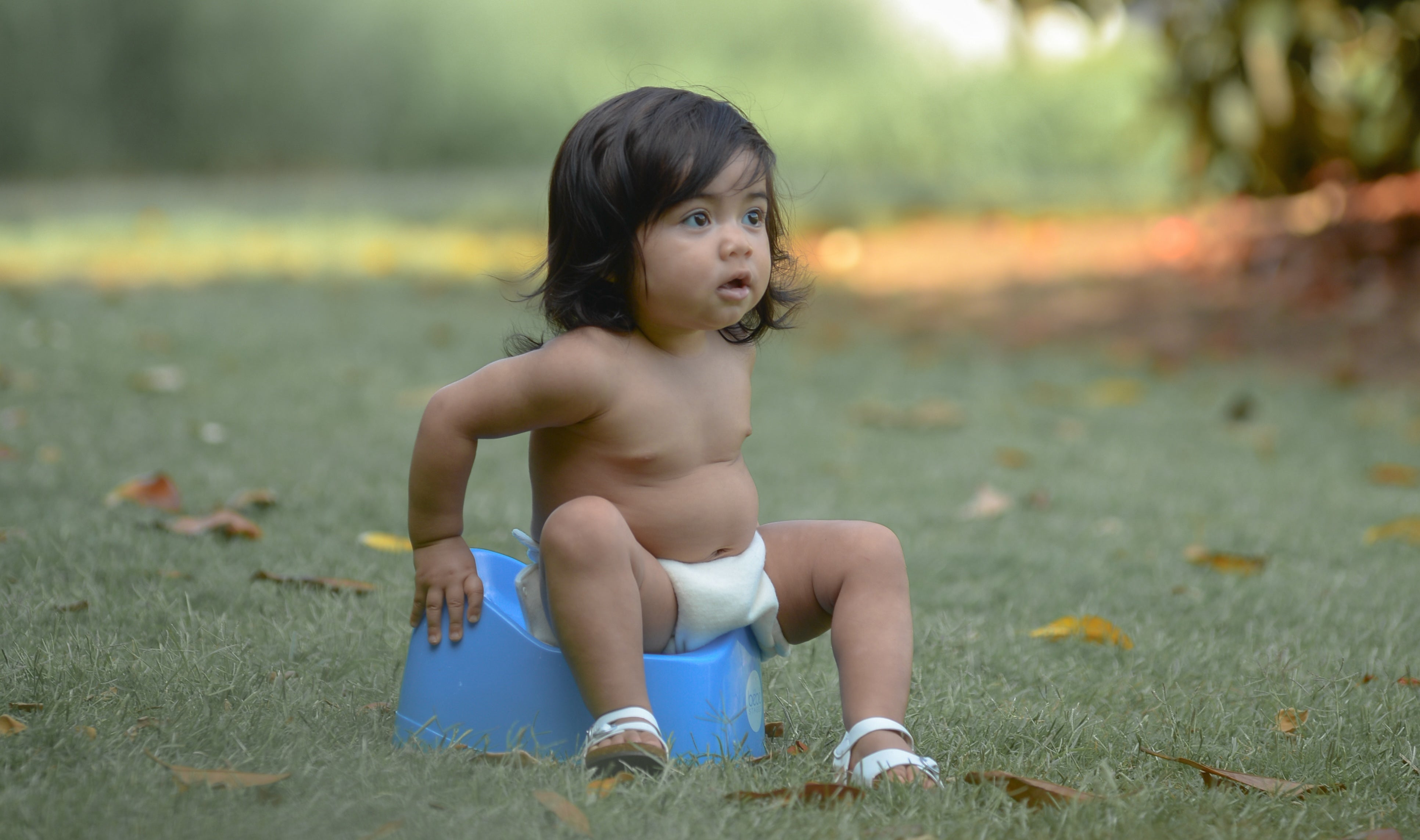
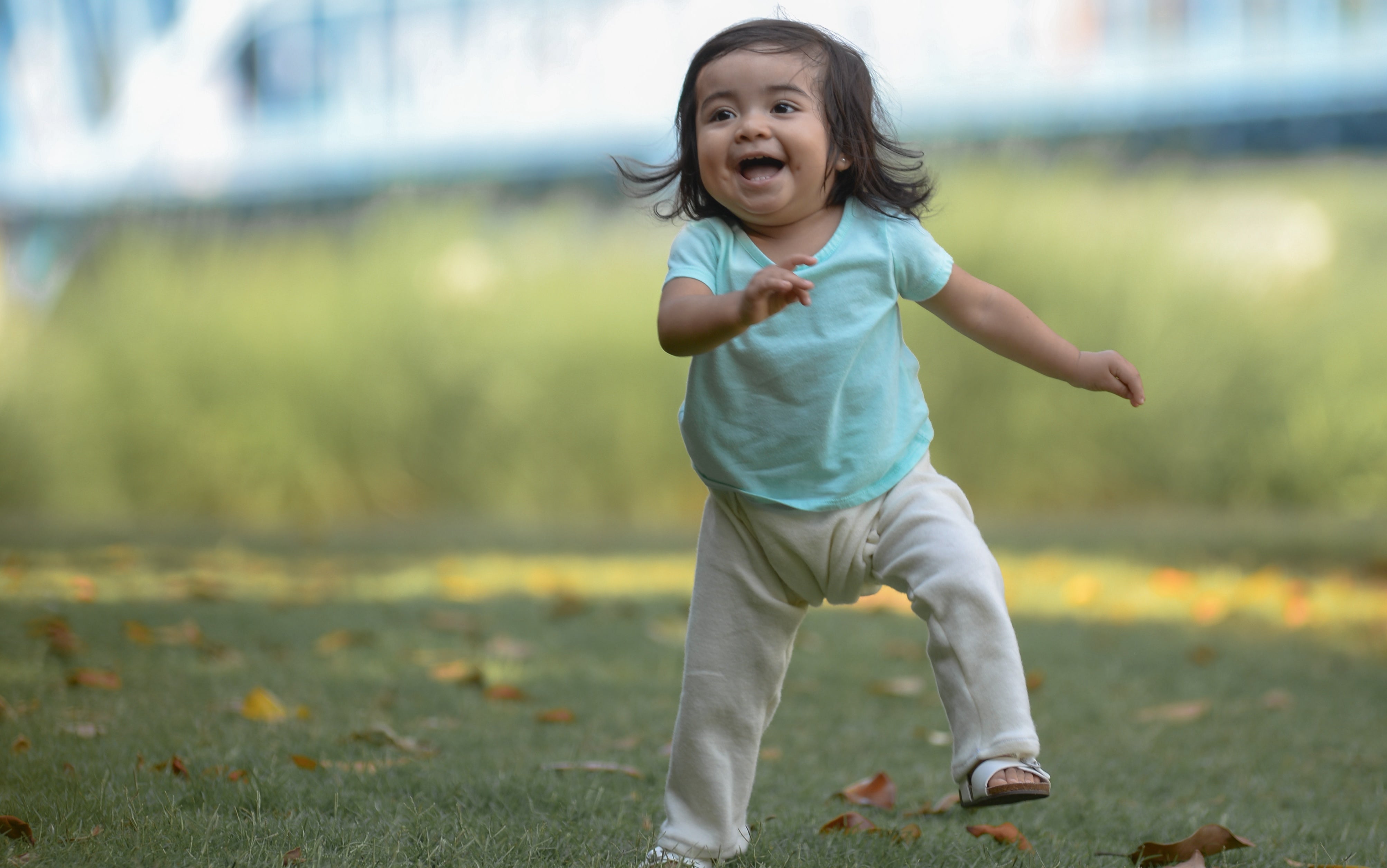


I completely understand your frustration with finding fragrance-free baby products! It’s so important to avoid unnecessary chemicals for sensitive skin. I love the tip about using minimal ingredients and switching to a gentle soap like RKP’s Everyday Baby Soap Bar—it sounds like a game-changer! Cloth diapers and proper detergent use are also great ideas. Thanks for sharing these helpful tips!
Leave a comment